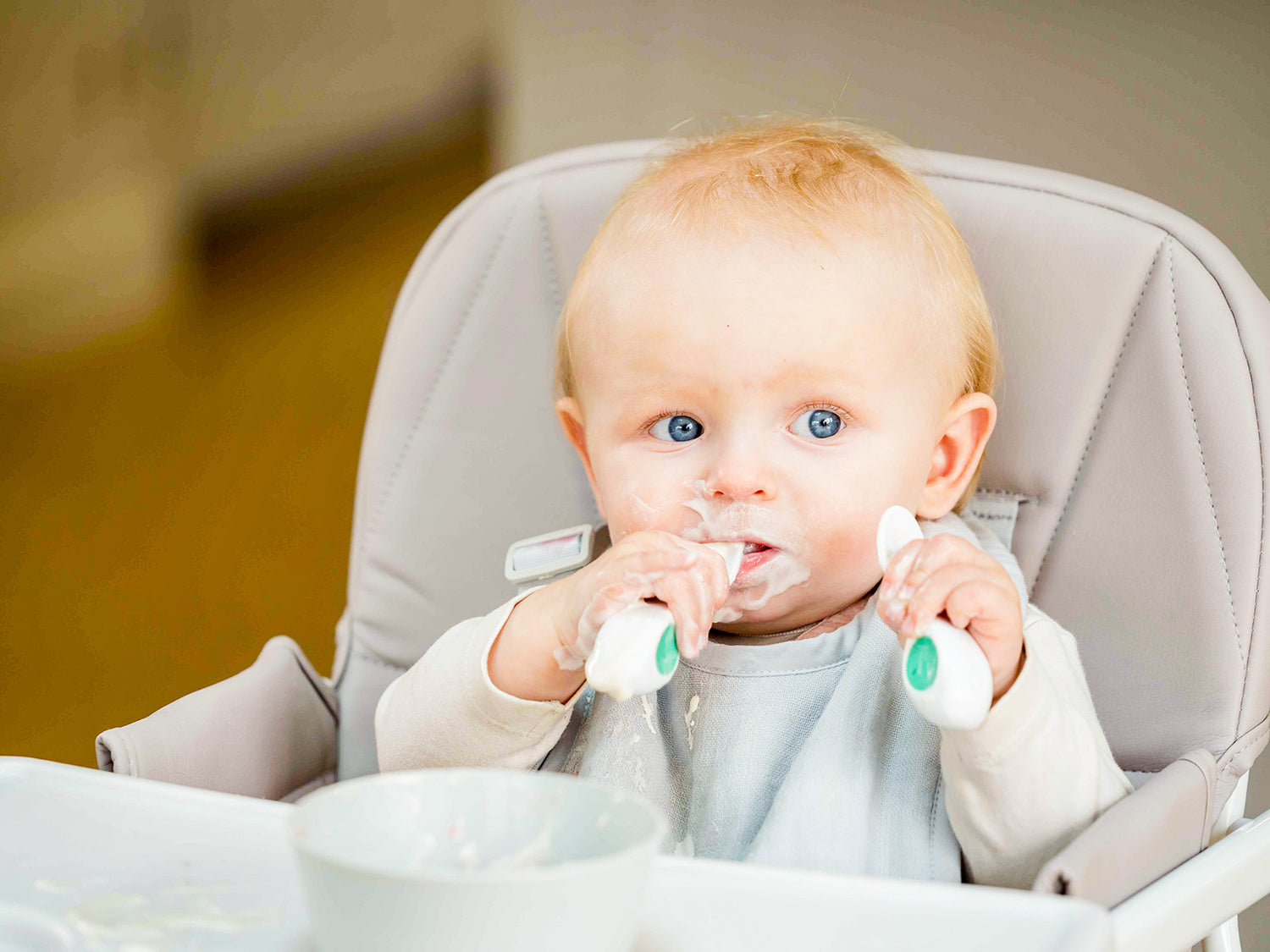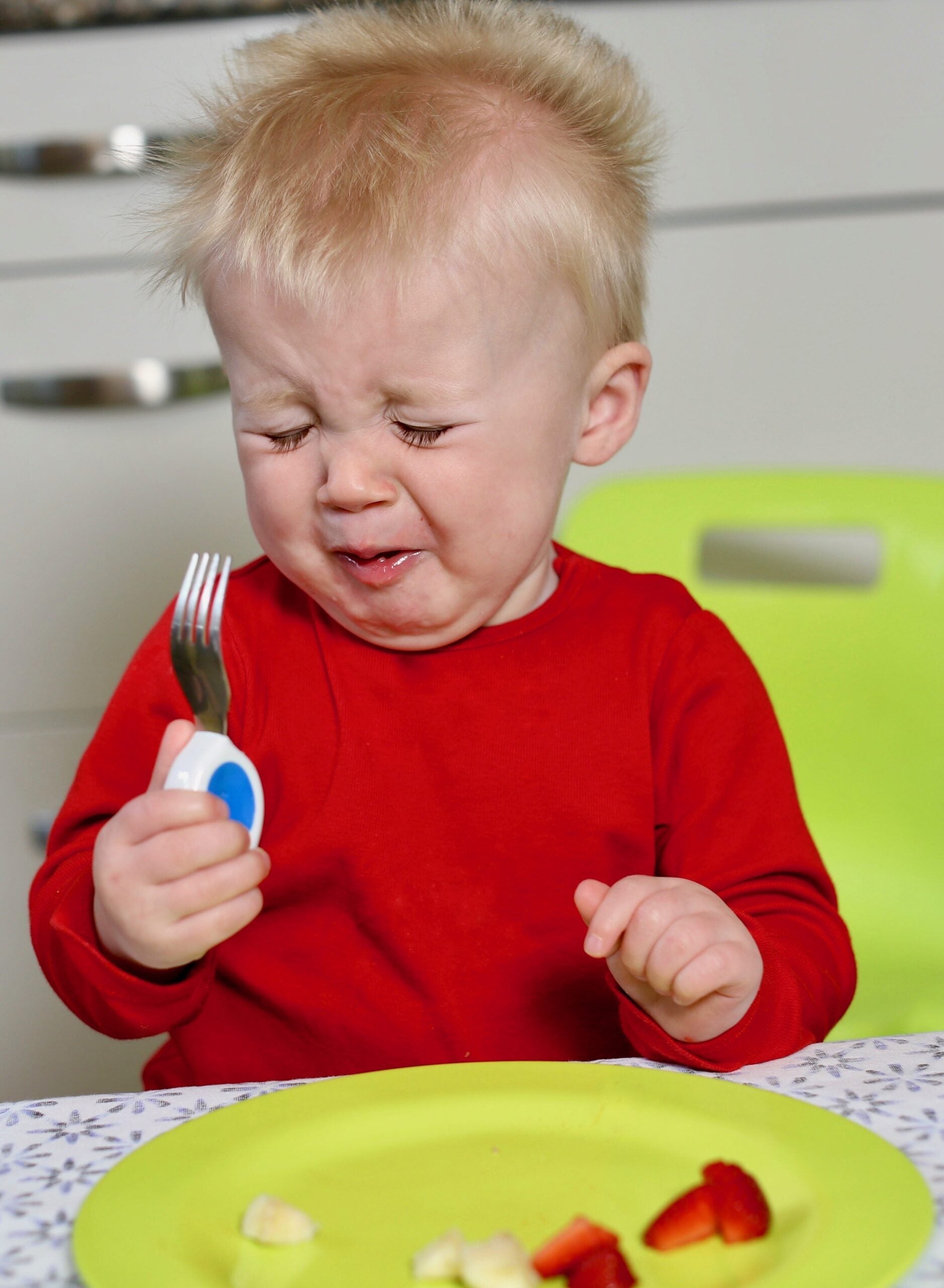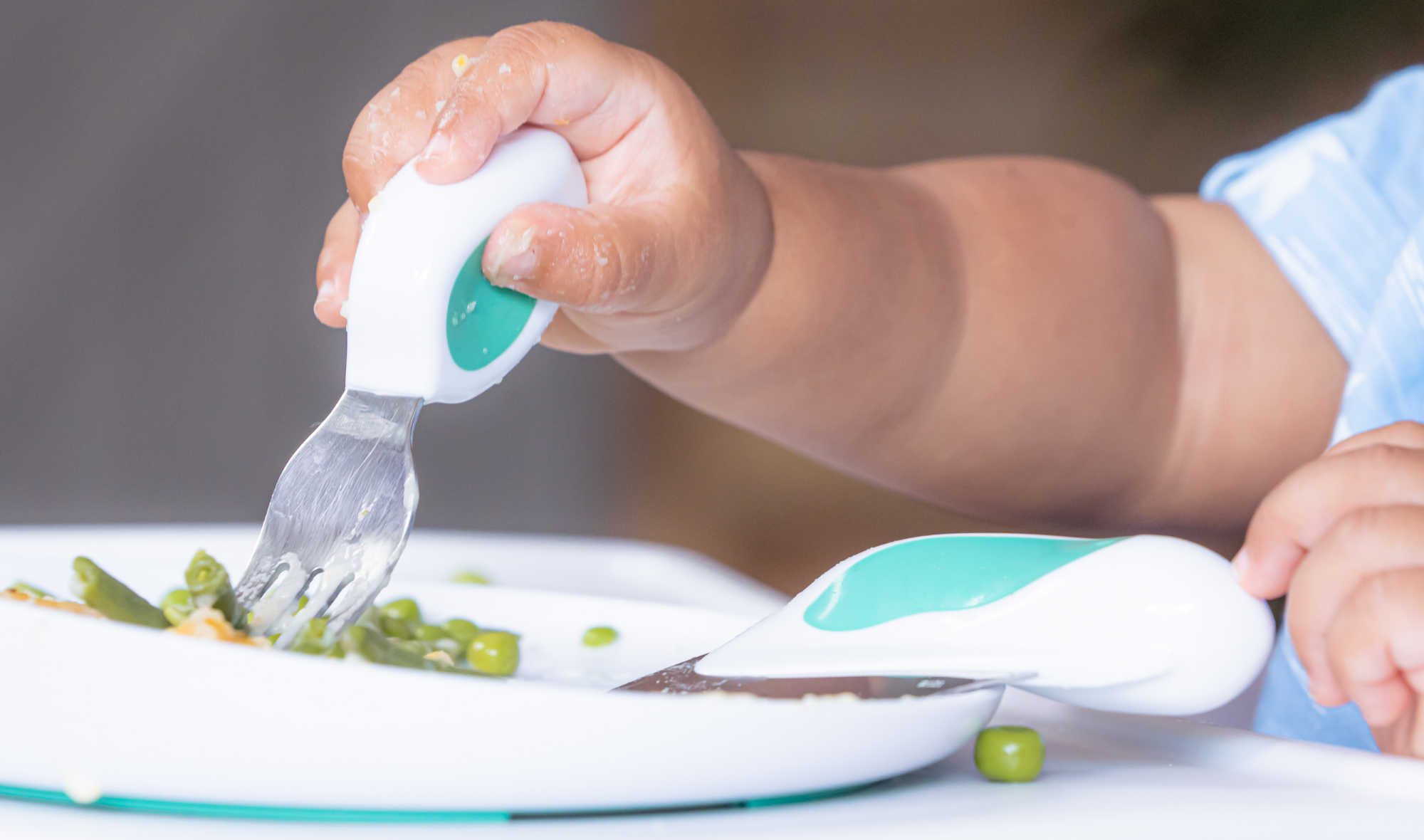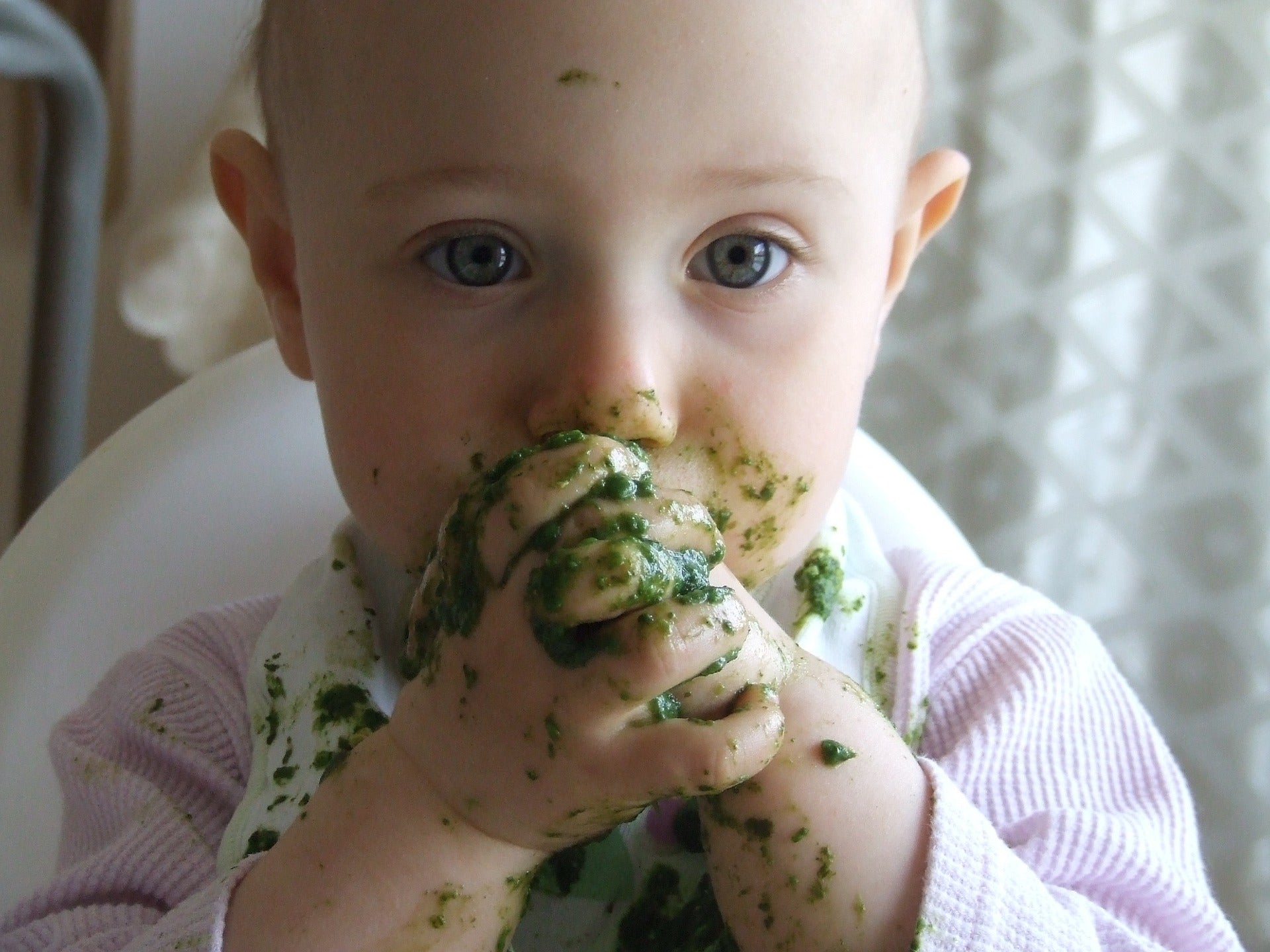If you're thinking about, or in the process of weaning with your baby, there is plenty of advice out there to help support and guide you.
You can find some of it here at doddl in our Parent Hub. But if you are weaning and worried about your baby choking, it can make things more difficult. If you're all set, but can't shake that nagging worry about offering finger foods for fear of choking, Stacey Zimmels, Paediatric Speech and Language Therapist and feeding specialist, and one of doddl’s expert partners, is here to help with some hints and tips around what to look out for. Knowledge is power, and knowing the differences between gagging, coughing and choking is vitally important.
Gagging
- Gagging is a normal protective reflex that is highly sensitive when weaning starts. This is because its designed to stop your baby from choking. Observing your child gagging when solids are first introduced is quite normal.
- Gagging looks like your baby may be about to be sick, they will open their mouth and push the tongue forward. It may be silent or there may be a retching noise that goes with it. Before and after a gag your child will be able to vocalise normally.
- Gagging will reduce over time
- If you see your baby gagging, try not to panic or your little one could sense your alarm. Stay calm, count silently to 10 and remember it’s a sign that your baby’s body is doing what it is meant to do.
Coughing
- Coughing/spluttering occurs when your baby or child struggles to co-ordinate the oral motor and swallowing phases of eating or drinking. Coughing can also commonly occur when weaning, particularly as your little one gets used to drinking water.
Choking
- Partial choking typically happens with food or a foreign body such as a small toy enters the airway. Symptoms include intense coughing, changes in breathing, distress and panic.
- Choking is usually silent or very quiet. This is because during a true choking episode a piece of food (or other object) will become lodged in the airway. This will stop the air from the lungs from travelling up and out of the mouth, making it difficult to make sound or breathe.
- Signs of choking may also include, changing colour of the face and lips to grey/blue, a look of panic, and an older child may flap or wave their hands in the air.
What to do if your child chokes
Michelle Eshkeri, a baby/child first aid trainer from the North London based company Parent Partner, advises that:
- For partial choking, the recommended treatment is to turn the baby/child over so that their head is lower than the stomach. This allows gravity to help the body expel the foreign body. Coughing should also be encouraged.
- For a fully blocked airway, the recommended treatment is to turn the baby/child over and deliver up to 5 back blows, checking for the foreign body between each blow.
- If this is not successful, deliver up to 5 chest/abdominal thrusts, again checking in between each manoeuvre to see what is happening. Back blows and thrusts are then alternated in groups of 5 until such point as the baby/child loses consciousness. At that point CPR should be commenced. 999 should be called immediately or if the first aider is alone, after 1 set of back blows/thrusts have been delivered (10 manoeuvres).
- There is no substitute for practicing the correct techniques in first aid. Michelle recommends that all parents and carers attend a baby/child first aid course every 2-3 years.
If coughing/spluttering and gagging persists with eating or drinking it could be a sign of a swallowing difficulty. It may require an assessment from a feeding and swallowing specialist speech therapist.
You can find out more about Stacey @feedeatspeak or by visiting www.feedeatspeak.co.uk





